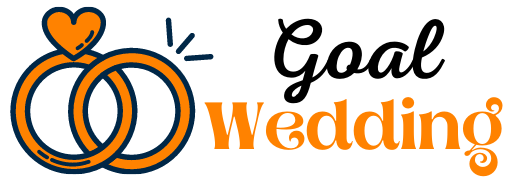The Controversy Surrounding “lilianaheartsss leaked”
-
Table of Contents
- The Controversy Surrounding “lilianaheartsss leaked”
- What is “lilianaheartsss leaked”?
- The Impact on Liliana Hearts
- The Role of Social Media Platforms
- The Legal Implications
- Protecting Personal Information Online
- Q&A
- 1. How can individuals protect themselves from personal information leaks?
- 2. What are the potential consequences of personal information leaks?
- 3. What responsibilities do social media platforms have in safeguarding personal information?
- 4. Can legal action be taken against individuals responsible for personal information leaks?
- 5. What are some best practices for protecting personal information online?
- Summary
In recent months, the internet has been abuzz with discussions about the controversial topic of “lilianaheartsss leaked.” This article aims to delve into the details of this issue, providing valuable insights and shedding light on the implications it has for individuals and society as a whole.
What is “lilianaheartsss leaked”?
“lilianaheartsss leaked” refers to the unauthorized release of personal and private information belonging to the popular social media influencer, Liliana Hearts. This incident has sparked a significant amount of controversy and debate, raising important questions about privacy, online security, and the responsibilities of both individuals and platforms in safeguarding personal information.
The Impact on Liliana Hearts
The leaking of personal information can have severe consequences for individuals, particularly those in the public eye. In the case of Liliana Hearts, the leaked information included her home address, phone number, and intimate photos. This invasion of privacy has not only caused emotional distress but also put her physical safety at risk.
Furthermore, the leaked content has the potential to damage Liliana Hearts’ personal and professional reputation. Once private information is made public, it becomes difficult to control its dissemination and the narrative surrounding it. This can lead to negative perceptions and judgments from both fans and potential business partners.
The Role of Social Media Platforms
Social media platforms play a crucial role in the “lilianaheartsss leaked” controversy. As the primary medium through which Liliana Hearts interacts with her audience, these platforms have a responsibility to ensure the security and privacy of their users. However, incidents like this highlight the challenges faced by platforms in preventing unauthorized access to personal information.
While platforms have implemented various security measures, such as two-factor authentication and content moderation, they are not foolproof. Hackers and malicious actors are constantly evolving their techniques, making it difficult for platforms to stay one step ahead. This raises questions about the adequacy of current security measures and the need for continuous improvement.
The Legal Implications
The leaking of personal information is not only a breach of privacy but also a potential violation of the law. Laws regarding privacy and data protection vary across jurisdictions, but many countries have legislation in place to protect individuals from such incidents.
In the case of “lilianaheartsss leaked,” legal action can be pursued against the individuals responsible for the breach. Liliana Hearts can seek damages for emotional distress, invasion of privacy, and any other harm caused by the leak. Additionally, the hackers themselves can face criminal charges, depending on the jurisdiction and the severity of the breach.
Protecting Personal Information Online
Given the prevalence of data breaches and leaks, it is essential for individuals to take proactive steps to protect their personal information online. Here are some best practices to consider:
- Use strong, unique passwords for each online account
- Enable two-factor authentication whenever possible
- Regularly update software and applications to ensure the latest security patches are installed
- Be cautious when sharing personal information online, especially on public platforms
- Consider using a virtual private network (VPN) to encrypt internet traffic
Q&A
1. How can individuals protect themselves from personal information leaks?
Individuals can protect themselves from personal information leaks by using strong, unique passwords, enabling two-factor authentication, regularly updating software, being cautious when sharing personal information online, and considering the use of a virtual private network (VPN).
2. What are the potential consequences of personal information leaks?
Personal information leaks can have severe consequences, including emotional distress, damage to personal and professional reputation, and physical safety risks.
3. What responsibilities do social media platforms have in safeguarding personal information?
Social media platforms have a responsibility to ensure the security and privacy of their users. This includes implementing robust security measures, continuously improving their systems, and promptly addressing any breaches or leaks that occur.
4. Can legal action be taken against individuals responsible for personal information leaks?
Yes, legal action can be pursued against individuals responsible for personal information leaks. This can include seeking damages for emotional distress, invasion of privacy, and other harm caused by the leak. Additionally, hackers themselves can face criminal charges in some cases.
5. What are some best practices for protecting personal information online?
Some best practices for protecting personal information online include using strong, unique passwords, enabling two-factor authentication, regularly updating software, being cautious when sharing personal information online, and considering the use of a virtual private network (VPN).
Summary
The “lilianaheartsss leaked” controversy has brought to the forefront the importance of privacy and online security. The impact on individuals like Liliana Hearts highlights the need for stronger measures to protect personal information and the responsibilities of social media platforms in safeguarding their users.
While legal action can be pursued against those responsible for leaks, it is crucial for individuals to take proactive steps to protect their personal information online. By following best practices and staying informed about the latest security measures, individuals can mitigate the risks associated with personal information leaks.
Ultimately, the “lilianaheartsss leaked” controversy serves as a reminder of the ongoing battle between privacy and the digital age. It is a call to action for individuals, platforms, and lawmakers to work together to create a safer and more secure online environment for all.





